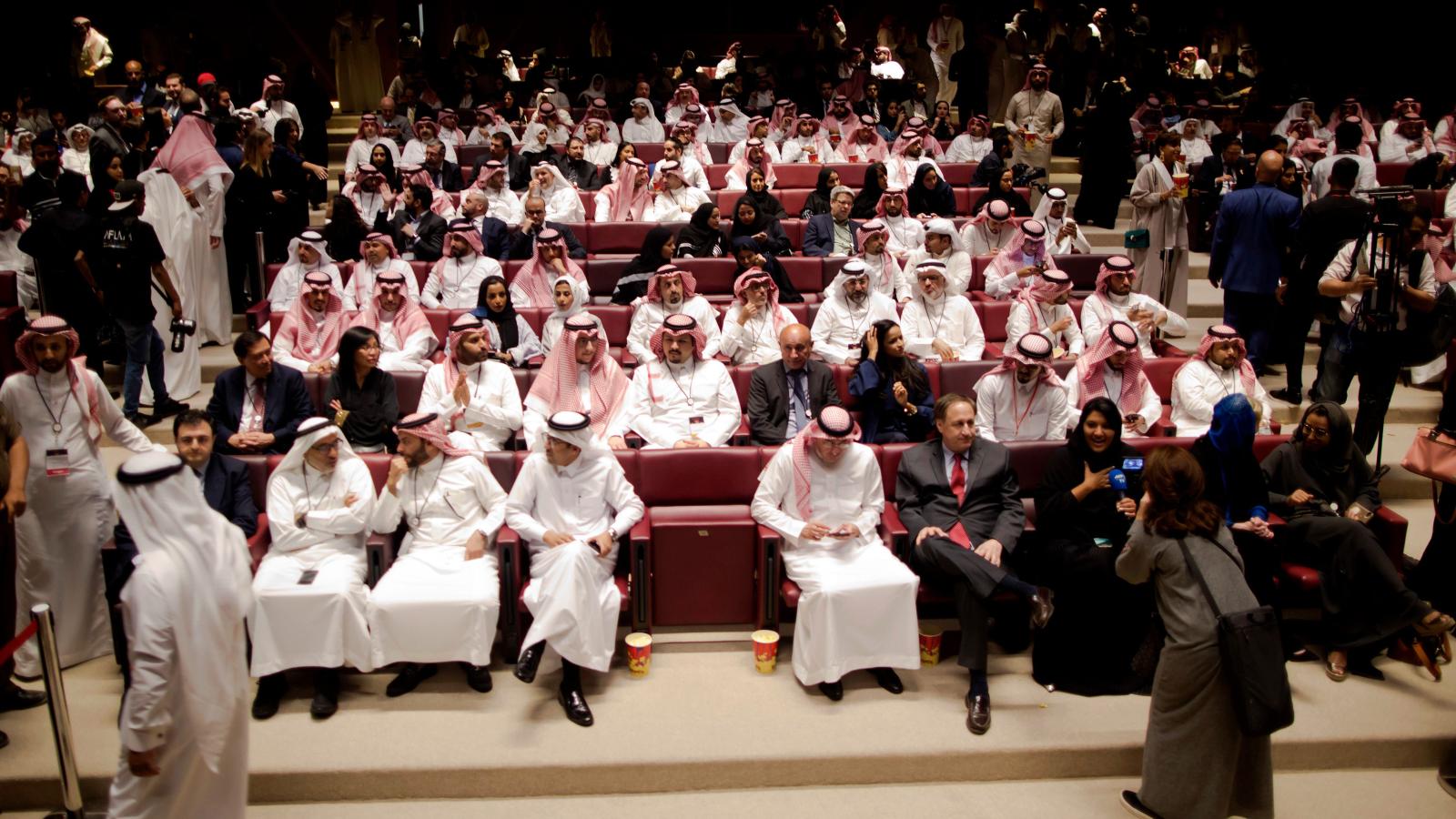ABEER ABUNAYYAN WRITES — In 2018, Prince Mohammed bin Salman lifted the ban on theaters that had been in place for 35 years.
The ban had originally been in place due to social pressure from conservative Islamists to limit public entertainment, particularly theaters that had mixing between men and women. However, Prince Mohammed bin Salman has increasingly voiced support for returning the country to moderate Islam as part of his Vision 2030 initiative.
Not surprisingly, his decision to lift the ban was met with widespread acclaim, including from the Minister of Culture and Information, Awwad Alawwad, as well as the majority of the Saudi public. The benefits of lifting the ban in 2018 include an improved economy, more entertainment for the Saudi public, the growth of an emerging film industry, and more acceptance of different types of pop culture in Saudi Arabia, enriching the country’s cultural output.

By lifting the ban, the first benefit is an improved economy. The Saudi government has estimated that reopening theaters will create over 30,000 jobs, while contributing $24 billion to the Saudi economy. This is a significant amount, and it also helps reduce Saudi’s dependency on oil, which is also an initiative of Vision 2030. Jobs are created due to the need to sell tickets and staff theaters, and they are also created in the process of making films. Directors, actors, screenwriters, cameramen, and many other positions are needed to produce a film. As such, many jobs will be created, and the money generated from movie theaters will remain in the Saudi economy. Before the ban, many Saudis went to Dubai or Bahrain in order to watch movies,, which meant that a lot of money was spent in other countries. The current plan on boosting the film industry involves creating 350 movie theaters by 2030, which will have profound benefits on the Saudi economy.
Second, movie theaters provide Saudis with more options for entertainment, as well as providing them with increased social opportunities as well. During the ban on theaters, Saudis could still rent DVDs, watch movies on satellite television, or on the internet. Thus, the ban did not prohibit movies, it simply prohibited people from gathering to watch movies at a cinema. However, because there was no local film industry, movies that Saudis watched tended to be foreign. Now, with lifting the ban on movie theaters, Saudis will be inspired to start making films that reflect their own culture and experiences. Instead of having their stories told by someone else, including those who do not fully understand Saudi culture, Saudis will be empowered to write and film their own stories.
Similarly, as the public sees these films, some will be inspired to make films themselves, giving rise to an emerging film industry in SA. Lifting the ban on movie theaters has helped reduce the stigma previously associated with films. Saudi filmmakers used to make films in secret, and they would sometimes be accosted by police if they were seen filming in public. In some instances, the act of auditioning a female actress would sometimes be met with suspicion for solicitation. Now that the ban is lifted, the stigma against films is gone, and more potential filmmakers will be inspired to write and direct films, which in turn will help grow an emerging industry that has much potential.
Once the film industry in Saudi Arabia becomes more established, films produced in SA can be entered into international film festivals, where they will gain an international audience. This is an important way to expose the world about Saudi culture, which has often been criticized by media in other governments. If international audiences are able to see Saudi life from Saudi filmmakers, and not from the biased view of the media, they will be able to see a more honest view of Saudi culture. As such, lifting the cinema ban will boost Saudi Arabia’s image in the eyes of the rest of the world. Not only is this a progressive move reflective of moderate Islam, it is also a move that has received the support of the international community at large.
For many young Saudis, the ability to see movies in a theater has increased their knowledge and appreciation of pop culture. Popular culture gives many people joy and happiness in their lives, and that is one of the lasting benefits of removing the ban on theaters. Films in SA are still subject to censors, so Saudis will not be exposed to things that are considered truly offensive, such as nudity. Thus, the results from lifting the ban are entirely positive. Saudis have more options for their entertainment, instead of needing to travel to other countries to view movies; the economy is growing by a significant amount, as more jobs are created both in the film and theater industries; SA is able to show its culture through film to the rest of the world; and popular culture has become a source of both inspiration and knowledge for the Saudi public.

